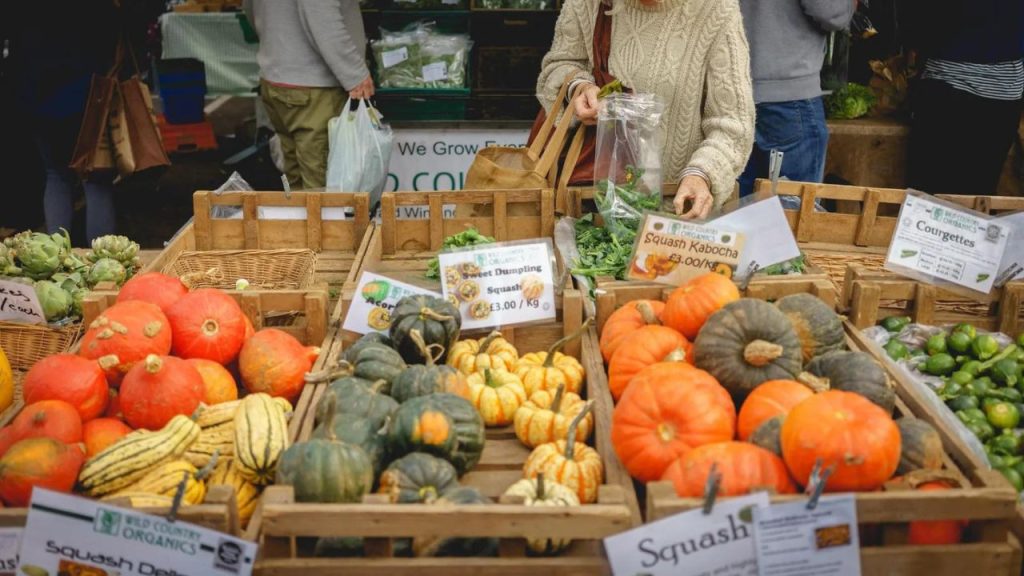The Rise of Organic Farming
Organic farming has become a prominent feature of the British agricultural landscape, driven by growing consumer demand for sustainably produced food and increasing awareness of environmental issues. In the UK, organic farming is seen as a way to improve food quality, protect the environment, and support local economies. This article explores the current state of organic farming in the British market, its benefits, challenges, and future prospects.
What is Organic Farming?
Organic farming is an agricultural system that avoids the use of synthetic pesticides, fertilisers, and genetically modified organisms (GMOs). Instead, it focuses on natural processes and materials to maintain soil health, manage pests, and support biodiversity. Organic practices include crop rotation, composting, and biological pest control.
Growth of Organic Farming in the UK
The organic farming sector in the UK has seen significant growth in recent years. According to the Soil Association, one of the UK’s leading organic certification bodies, the organic market has experienced a steady increase in both the number of farms and the consumer base. Organic produce is now widely available in supermarkets, farmers’ markets, and specialty stores.
This growth is driven by several factors:
- Consumer Demand: There is a growing preference for organic food among British consumers, who are increasingly concerned about the environmental impact of conventional farming and the quality of the food they eat.
- Environmental Awareness: Awareness of the benefits of organic farming, such as reduced chemical use and enhanced soil health, has contributed to its popularity.
- Government Support: Various government initiatives and subsidies have supported the transition to organic farming, including grants for farmers adopting organic practices and funding for research into organic agriculture.
Benefits of Organic Farming
Organic farming offers several benefits, both for the environment and for consumers:
- Environmental Protection: Organic farming practices help to preserve biodiversity, improve soil health, and reduce water pollution. By avoiding synthetic chemicals, organic farms contribute to a cleaner environment and healthier ecosystems.
- Animal Welfare: Organic standards often include higher welfare standards for livestock, including access to outdoor spaces and organic feed.
- Food Quality: Organic produce is often perceived as being of higher quality, with a focus on taste and nutritional value. Some studies suggest that organic foods may contain higher levels of certain nutrients and fewer pesticide residues.
Challenges Facing Organic Farming
Despite its benefits, organic farming faces several challenges:
- Cost and Labour: Organic farming can be more labour-intensive and costly compared to conventional farming. The need for manual weeding, organic inputs, and certification processes can increase production costs.
- Market Access: Although organic products are in demand, small-scale organic farmers may face difficulties accessing mainstream markets and competing with larger producers.
- Yield and Productivity: Organic farms often have lower yields compared to conventional farms, which can affect profitability. The use of natural pest control and soil management practices can result in smaller harvests.

Organic Certification and Standards
In the UK, organic farming is regulated by strict certification standards set by bodies such as the Soil Association and Organic Farmers & Growers (OF&G). These standards ensure that organic products meet specific criteria, including the prohibition of synthetic chemicals and adherence to environmentally friendly practices.
Certification involves rigorous inspections and audits to verify compliance with organic standards. This process provides consumers with confidence that the products they purchase are genuinely organic and produced according to recognised principles.
The Future of Organic Farming in the UK
The future of organic farming in the UK appears promising, with several trends and developments shaping the sector:
- Increased Consumer Awareness: As consumers become more conscious of the environmental and health impacts of their food choices, demand for organic products is expected to continue growing.
- Innovation and Technology: Advances in technology and farming practices are likely to enhance the efficiency and sustainability of organic farming. Innovations such as precision agriculture and improved pest management strategies can help to address some of the challenges faced by organic farmers.
- Policy Support: Ongoing government support and investment in organic farming can help to overcome barriers and promote further growth. Policies that incentivise organic practices and support research into sustainable agriculture will be crucial in shaping the future of the sector.
Conclusion
Organic farming is a significant and growing part of the British market, driven by increasing consumer demand for sustainable and high-quality food. While the sector faces challenges, such as higher costs and lower yields, it also offers considerable benefits for the environment, animal welfare, and food quality. As awareness of organic farming continues to rise and innovations improve its efficiency, the future of organic agriculture in the UK looks set to be both vibrant and influential.
